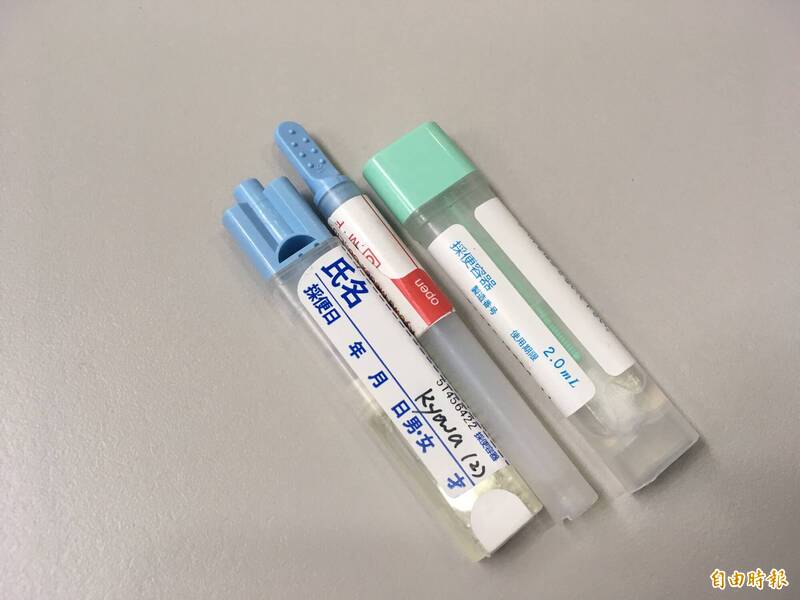The doctor said that if the fecal occult blood test is positive, in addition to the possibility of tumors, it may also be intestinal polyps, hemorrhoids and other problems, so a positive result does not mean that there is colorectal cancer; schematic diagram.
(file photo)
[Health Channel/Comprehensive Report] A 55-year-old male office worker went to the hospital for a fecal occult blood test every 2 years provided by the National Health Department, and the result was positive. He was so frightened that he asked the doctor, "Are you suffering from colorectal cancer? Is there no bleeding normally?” Regarding this, the doctor suggested that the patient should undergo a colonoscopy as a further in-depth examination.
Because the fecal occult blood test is positive, in addition to the possibility of tumors, it may also be intestinal polyps, hemorrhoids and other problems, so a positive result does not mean that there is colorectal cancer.
Positive fecal occult blood does not mean colorectal cancer
Chen Weiyou, director of Tianxin Colorectal Surgery Clinic, posted on the Facebook fan page "Tianxin Colorectal Surgery Clinic Director Chen Weiyou", pointing out that fecal occult blood is a very simple method of detection, and its sensitivity to lower gastrointestinal bleeding is as high as 80%. If the fecal occult blood test is positive, in addition to the possibility of tumors, it may also be intestinal polyps, hemorrhoids and other problems, so a positive result does not mean that there is colorectal cancer.
According to research, 80% of the correlation between the two is a false positive relationship; on the contrary, if the test result is negative, it does not mean that there is absolutely no colorectal cancer, so it is still necessary to do a thorough examination and confirmation by colonoscopy .
Please read on...
CEA is a common indicator of colorectal cancer but not absolute
Chen Weiyou said that although blood drawing for carcinoembryonic antigen or carcinoembryonic index (CEA) is a commonly used indicator of colorectal cancer, CEA also exists on normal mucosal cells, so in colorectal cancer, cervical cancer, breast cancer, gastric cancer, pancreatic cancer Cancer, lung cancer, ovarian cancer, prostate cancer, etc., or diverticulitis, peptic ulcer, chronic bronchitis, liver abscess, alcoholic cirrhosis, or smoking, etc., may cause the CEA index to exceed the standard, so the CEA index cannot be used as a The absolute index for early screening of colorectal cancer is mainly used as a reference index for detecting colorectal cancer stage, cancer cell metastasis, and recurrence after surgery.
High-risk groups should regularly arrange colonoscopy
Chen Weiyou said that colorectal cancer is a very common malignant tumor with a high mortality rate and a younger trend. If there is no regular screening, it may be too late until there are lesions such as bloody stools, such as the daughter of artist Zhu Geliang and Yu Tian All died of colorectal cancer, which also raised the public's awareness of colorectal cancer.
Chen Weiyou emphasized that the high-risk groups of colorectal cancer include obesity, excessive intake of red meat or processed meat, over 50 years old, men, smoking, drinking, family history, etc. It is recommended that high-risk groups should regularly arrange fecal occult blood tests , and supplemented by colonoscopy tracking. After all, colonoscopy is the most direct tool that can enter the intestinal tract to check the actual situation. Early detection of intestinal tumors can greatly reduce the risk of death from colorectal cancer.
☆Health news will never be missed, click like to follow the fan page.
☆For more important medical news, please go to Liberty Health.com.
keywords
obesity
colorectal cancer
the tumor
fecal occult blood
Colonoscopy
intestinal polyps
related news
